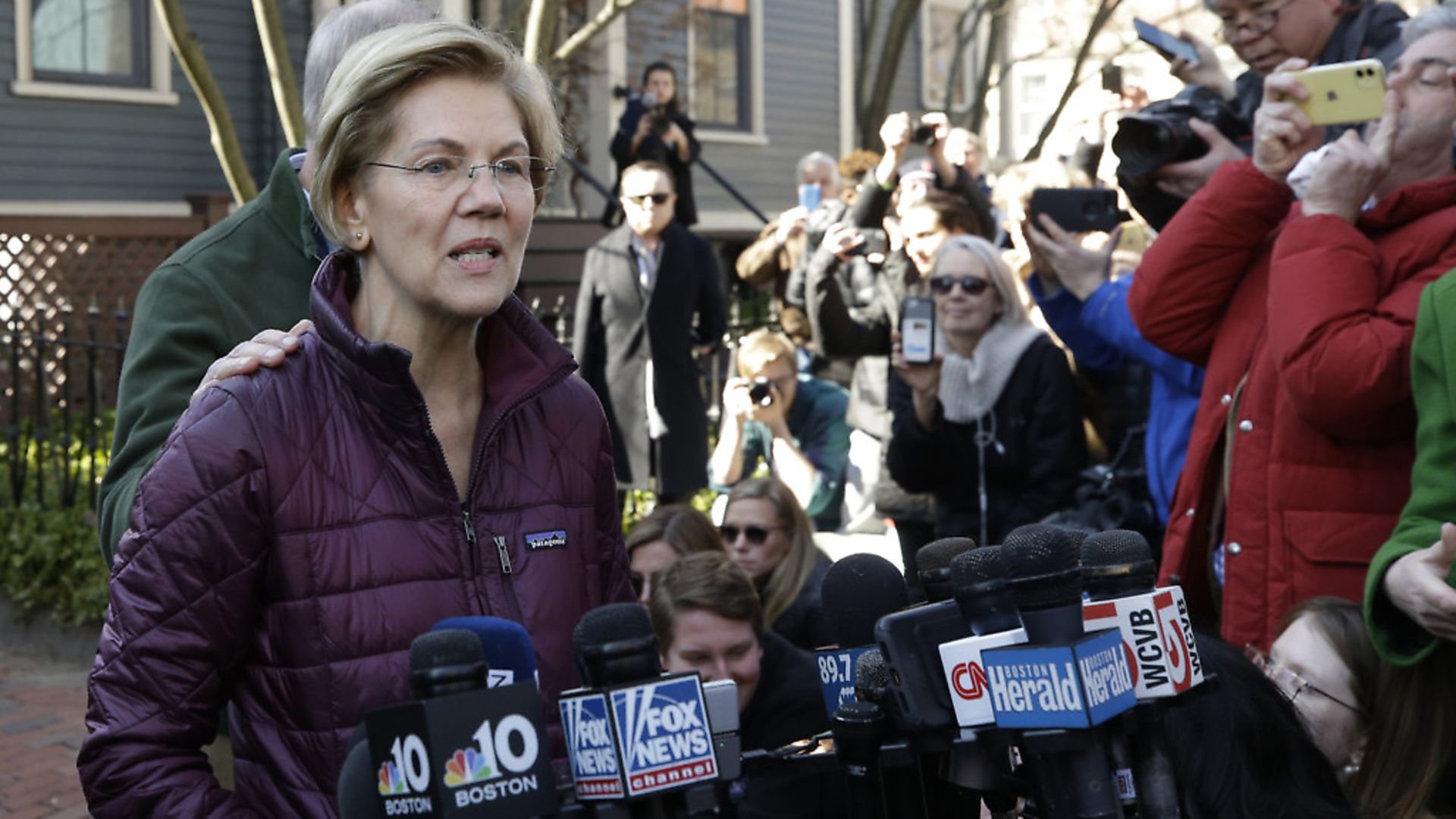
Hopes of a female president in America have faded after Elizabeth Warren withdrew from the contest for the Democratic Party’s nomination.
Warren’s departure after a campaign that had promised so much leaves only one woman, Tulsi Gabbard, in the race but it would need a miraculous turnaround for her to secure the nomination.
Instead Trump looks set to face an older man in November, either former vice president Joe Biden or Bernie Sanders.
While the Massachusetts senator said she was proud of her bid, she was also candid in expressing disappointment that a formerly diverse field is essentially now down to those two men.
“All those little girls who are going to have to wait four more years,” Warren told reporters outside her home in Cambridge, Massachusetts, as her voice cracked. “That’s going to be hard.”
Have your say
Send your letters for publication to The New European by emailing letters@theneweuropean.co.uk and pick up an edition each Thursday for more comment and analysis. Find your nearest stockist here or subscribe to a print or digital edition for just £13. You can also join our readers' Facebook group to keep the discussion and debate going with thousands of fellow pro-Europeans.
Known for having “a plan for that,” Warren electrified progressives for much of the past year by releasing reams of policy proposals that addressed such issues as maternal health care, college debt, criminal justice reform and the new coronavirus.
But that energy did not translate into support once voters started making their decisions last month. She failed to capture any of the 14 states that voted on Super Tuesday and finished an embarrassing third in Massachusetts.
While she said she will rally behind whoever emerges as the Democratic nominee, House Speaker Nancy Pelosi also lamented the challenges facing women in politics.
“Every time I get introduced as the most powerful woman, I almost cry because I wish that were not true,” she said. “I so wish that we had a woman president of the United States.”
Gabbard is still in the race but faces steep odds and has won just two delegates in her quest for the nomination.
Although she is no longer a presidential contender, Warren is likely to remain a force in Democratic politics and could play a prominent role in a future administration if the party wins the White House.
Clearly aware of her power, Warren did not rush to endorse either Sanders or Biden.
Warren suggested that she would take her time before deciding whom to back. She did not endorse Sanders in 2016, something that infuriated some of his supporters, and only backed Hillary Clinton after she effectively won the nomination.
Sanders wasted little time making an appeal to Warren backers, saying: “I would simply say to her supporters out there, of which there are millions, we are opening the door to you. We’d love you to come on board.”
But the divisions among Democrats run deep. Toni Van Pelt, the president of the National Organisation for Women, urged Warren against siding with Sanders and noted Biden’s involvement in the passage of the Violence Against Women Act.
“She has a lot of leverage right now. We do trust her to make the right decisions on how to proceed. But we’d like her not to rush into this,” Van Pelt said.
“Sanders doesn’t have a record. He’s really, as far as we know, done next to nothing for women and for our issues and for the things that are our priorities.”
Warren said that “gender in this race, that is a trick question”, since any woman running for office who acknowledges sexism is derided as a “whiner” and those who do not are not accepting reality.
But she nonetheless suggested her road might have been harder than that of the male candidates.
“I was told at the beginning of this whole undertaking that there are two lanes, a progressive lane that Bernie Sanders is the incumbent for, and a moderate lane that Joe Biden is the incumbent for,” she said.
“And there’s no room for anyone else in this. I thought that wasn’t right, but, evidently, I was wrong.”










